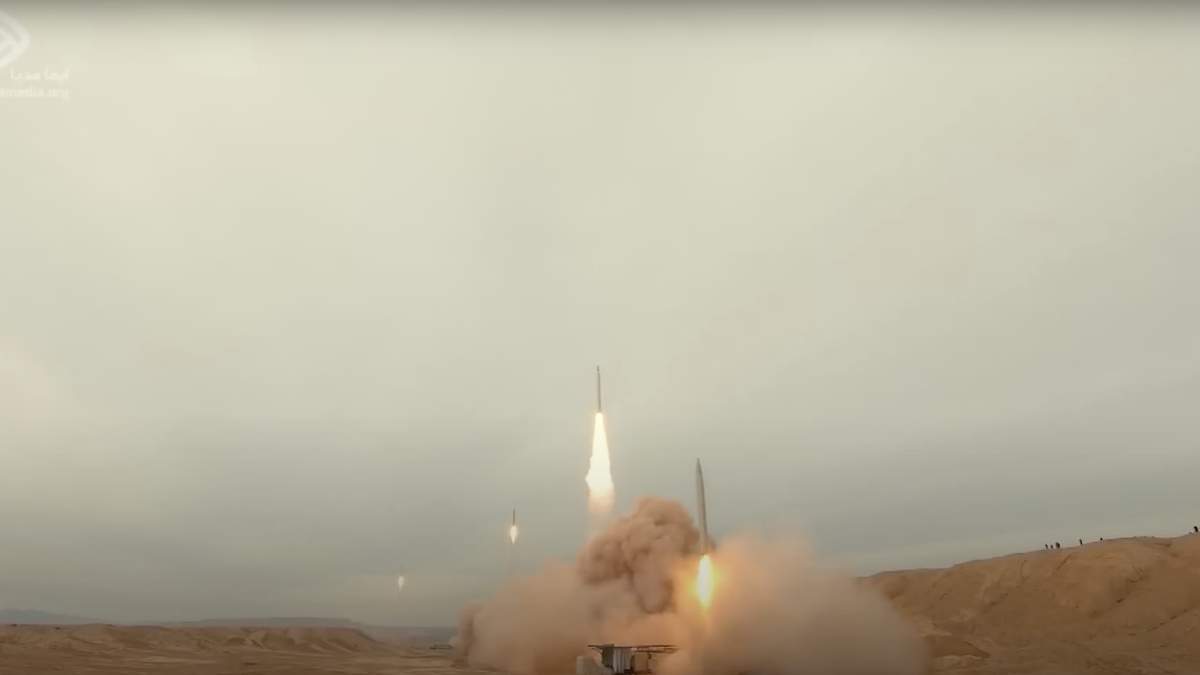
In April 2009, President Barack Obama pledged that the United States would seek a “world without nuclear weapons.” He invoked the specter of nuclear terrorism, painted a picture of a major city ceasing to exist in a nuclear flash, argued that “there is no end to what the consequences might be,” and asserted that the best security was the complete abandonment of nuclear weapons by every state in the world.
President Obama did not originate the idea of a nuclear-free world. Americans may be surprised to learn that nuclear disarmament has technically been U.S. policy for several decades. Article VI of The Nuclear Non-Proliferation Treaty (NPT), to which the United States is a signatory, pledges nuclear-weapons states to work towards nuclear disarmament. President Lyndon Johnson signed the treaty in 1968 and President Richard Nixon ratified it with the Senate’s consent in 1970. Obama’s goal of disarmament has ample, bipartisan precedent.
But is it a good idea? Obama expressed caution in his speech. “Make no mistake: As long as these weapons exist, the United States will maintain a safe, secure and effective arsenal to deter any adversary, and guarantee that defense to our allies.” There is an obvious pragmatic objection to nuclear disarmament: I’m all for it so long as everyone else does it first. So long as anyone has nuclear weapons, it seems only prudent to keep a few for ourselves just in case. And so long as everyone uses the same logic, no one will ever give them up.
That is reason enough to believe nuclear disarmament will never happen. The historical record of states voluntarily relinquishing power is short, and likely to stay that way. That, of course, should stop no one from advocating for nuclear disarmament: many great causes, including the abolition of the slave trade, were inconceivable until they came to pass.
The situation presents Christians with several related questions. Is nuclear disarmament one of those great causes? Should we rank it alongside abortion, human rights, and religious freedom as an animating moral cause that, no matter how impractical, we should faithfully pursue for as long as necessary? If not, why not? If nuclear weapons are at all acceptable, what is their proper role in a state’s legitimate self-defense?
Is There A Moral Case For Nuclear Weapons?
An interesting aspect of President Obama’s speech is that he did not argue for why the United States should pursue disarmament of specifically nuclear weapons, to the exclusion of other kinds of weapons. He simply asserted it as an obvious truth. Obama’s speech reflected a widespread, inarticulate assumption about nuclear weapons: there is, in this view, something uniquely immoral about them. We have a visceral horror of nuclear weapons because we know they can destroy cities; they cause cancer; they deform people with intense heat. But obvious truths, especially those founded on gut reactions, are the ones most worthy of questioning. Why not seek disarmament of other kinds of weapons? What is it about nuclear weapons that makes them especially repugnant?
It would be easier to argue for the immorality of all weapons under the guise of pacifism—all weapons, all war, and all violence are always wrong—but that is neither what the president argued nor what most Christians or most citizens instinctively believe. According to the just war tradition, Biblical passages like Genesis 9 and Romans 13 permit—even obligate—states to wage war in pursuit of a just cause. As part of the covenant God established with Noah and his descendants after the flood, God mandated that we pursue violent offenders with the sword: “From his fellow man I will require a reckoning for the life of man” (Genesis 9:5). God specifically did not reserve for himself the duty to strike down violent aggressors, but chose to delegate the task to us. This is the foundation of the state’s legitimate coercive authority and the reason most Christians have not been pacifists. “Rulers do not bear the sword for no reason,” Paul wrote (Romans 13:4), “They are God’s servants, agents of wrath to bring punishment on the wrongdoer.” The “sword” is a violent, coercive tool: states exist under God’s mandate to uphold order in this fallen world.
States can, therefore, wield weapons. Why not nuclear weapons? The best moral argument against nuclear weapons, as opposed to other kinds of weapons, is that they violate the just war principles of discrimination and proportionality. The principle of discrimination says that in fighting a war justly, we are obligated to discriminate between enemy combatants and civilians and avoid harming the latter as much as possible. This is a simple extension of our obligation to love our enemies and our neighbors: we should strive to kill as few of them as necessary. Because nuclear weapons are so big, they are hard to use in a discriminating way. Drop one bomb and you are almost guaranteed to kill far more people than is militarily necessary. Hiroshima was the headquarters of Japan’s Second General Army and Nagasaki was a major industrial center for war materiel, both legitimate wartime targets—but the nuclear bombing of those cities killed up to 250,000 people, almost all civilians.
The problem of discrimination is especially pernicious because of radioactive fallout. Like any bomb, a nuclear explosion destroys things instantaneously through heat and air blast, which can at least be aimed at a target by the bombers. But, unlike other weapons, it also releases and induces radiation, which cannot be aimed. Radioactive contamination can render buildings and land unusable and sicken and kill people days and weeks after exposure. Worse, radioactive debris thrown up into the atmosphere can linger and travel far afield by wind. The radiological effects of a nuclear weapon are probably its least discriminating aspect.
A Question of Proportionality
The principle of proportionality is a little more difficult. Wikipedia defines it this way: “The harm caused to civilians or civilian property must be proportional and not excessive in relation to the concrete and direct military advantage anticipated by an attack on a military objective.” This seems similar to the principle of discrimination with some allowance made for the inevitability of “collateral damage.” Some level of collateral damage is inevitable in war, but the principle of proportionality says that we should strive to keep it as low as possible, relative to the military goal we are pursuing.
In other words, if you are aiming to destroy a major enemy target—a headquarters, for example, or a nuclear weapons facility—the value of that target may permit the incidental death of a few civilians caught in the blast. On the other hand, you shouldn’t carpet-bomb a city to take out a single sniper. Nuclear weapons are difficult to use in a proportional way because, again, they are so big. What military value could be so high that it would justify the massive destruction of civilian lives and property that inevitably result from a nuclear explosion?
The moral case against nuclear weapons, then, comes down to three specific propositions:
1. Nuclear weapons are immoral because their impact is so large that it is impossible to use them in a way that discriminates between military and civilian targets.
2. Nuclear weapons are immoral because the radiation from nuclear fallout does not discriminate between military targets and civilians.
3. Nuclear weapons are immoral because their impact is so large that a) they inevitably cause massive damage to civilian lives and property and b) there is no conceivable level of military usefulness that could justify that level of damage.
Do these claims hold up to scrutiny, and are they founded on an accurate understanding of what nuclear weapons are and how they are used?
These claims rest on a certain understanding of the size and radioactivity of nuclear explosions. But nuclear weapons come in a variety of sizes and their radiological effects vary greatly depending on the type of the weapon, how it is used, where it is exploded, and more. Given these facts, it seems unwise to condemn or permit all nuclear weapons without looking closer.
Nuclear explosions are big—vastly larger than any non-nuclear bomb that has ever been invented. There really are orders of magnitude differentiating nuclear and non-nuclear bombs, even today. One of the largest conventional explosive weapons ever made, the Massive Ordnance Air Blast (MOAB), was developed in 2002 and has an explosive yield of 11 tons of TNT. The nuclear weapon dropped on Hiroshima, in August 1945, had an explosive yield of 16 kilotons (16,000 tons) of TNT. In other words, the first nuclear bomb, made 70 years ago, was almost 1,500 times more powerful than the biggest non-nuclear bomb ever made.
That said, nuclear bombs come in a wide range of sizes. Near the low end, North Korea’s nuclear weapons test in 2013 resulted in an estimated 6 kiloton (kt) explosion, and the U.S. may have had even smaller weapons early in the Cold War. At the high end, in 1961 the Soviet Union tested a 50 megaton (Mt) weapon—50 million tons of TNT, the largest man-made explosion in history. There are reports that they designed, but never built, a 100 Mt weapon. The U.S. arsenal maxed out with 15 – 25 Mt weapons, and today most weapons are in the high kt – low Mt range. (Massive weapons are less efficient than a large number of smaller weapons, which can distribute destruction more evenly across an entire city rather than focusing on one single point).
The important thing to note is that this is a huge range. Kiloton weapons are thousands of times more powerful than conventional explosives. Megaton weapons are thousands of times more powerful than kiloton bombs. The difference between a metagon bomb and a kiloton bomb is the same order of magnitude that separates kiloton bombs from conventional explosives.
In other words, to think of “regular bombs” and “nuclear bombs” is wrong. It is more accurate to think of three kinds of bombs: regular, nuclear, and super-nuclear. Or, to use military jargon and bomb designations, some bombs are described as “tactical” nuclear weapons, and others as “strategic” nuclear weapons. According to the Arms Control Association, the United States has 1,585 deployed strategic nuclear warheads, 2,800 strategic warheads in reserve, and 500 tactical warheads.
The Difference Between Tactical And Strategic
Tactical nuclear weapons, typically measured in kilotons, are designed for battlefield use—that is, against large military forces, like huge tank formations, aircraft carrier battle groups, massed armies, or deeply buried bunkers shielding nuclear weapons or enemy headquarters. That means tactical nuclear weapons could conceivably be used in an actual military scenario and might pass the tests of discrimination and proportionality.
.
Although any nuclear weapon would have a high likelihood of causing some civilian casualties unless used in open desert or the ocean, the degree of civilian harm might be relatively small if the nuclear warhead is small enough and the location relatively remote (i.e., not a city). If the target is a major enemy asset, such as a tank division, an aircraft carrier, a headquarters bunker, or a nuclear weapons arsenal, the military value might outweigh the potential harm to civilians. The United States faces several situations in which this might become a reality, such as military action against the buried nuclear facilities of North Korea or Iran, or a major Chinese naval assault against any of our allies in the Pacific.
By contrast, strategic nuclear weapons, typically measured in megatons, really have only one use: to wipe out your enemy’s civilization. Strategic nuclear weapons are known as “city-busters.” They are tools of genocide. The dystopian, doomsday scenarios of nuclear winter, the end of civilization, and the extinction of the human race are plausible because of strategic nuclear weapons. Tactical nuclear weapons are not designed for that degree of damage.
Death From Radiation
What of the radiological effects of nuclear bombs? Radiation can kill in two ways: radiation poisoning, and cancer. If you get a very large dose of radiation (over 300-500 rem) without immediate medical attention, you have a 50 percent chance of dying quickly from radiation poisoning. Over 500 rem is almost certainly lethal. If you get a small dose (100 rem or less) over a short time, you face no risk of radiation poisoning but you have a heightened risk of developing cancer later in life. (A dental x-ray gives you about 1/1000th of a rem).
Nuclear weapons are unlikely to kill people from radiation poisoning. All nuclear explosions generate lethal amounts of radioactivity, but the people who are exposed to the highest doses of radiation will already be dead from the heat or shock wave of the explosion. In a tactical, battlefield application, those would presumably be enemy soldiers whose death was intended, not civilians.
What about cancer? Nuclear explosions also result in lesser doses of radiation (less than 100 rem) over a larger area, exposing civilians to heightened cancer risk. But the radiological effects vary enormously depending on whether a bomb is detonated in the air above a target or on the ground. A ground burst vaporizes buildings and dirt, creating a massive amount of debris that is contaminated with radioactive byproducts and thrown up in the air. It then drifts with the wind before gradually falling down to earth (thus the term fallout).
This radioactive debris can be dangerous and unpredictable (though rarely enough to kill through radiation poisoning), and is morally troubling because it does not discriminate between soldiers and civilians. The most likely application of a ground burst tactical nuclear weapon would be to blow up an underground facility, which would necessarily create a radioactive debris cloud.
An air burst, by contrast, does not create a huge cloud of radioactive debris. The radioactive energy of a nuclear air burst is largely dissipated. Air bursts, conveniently, are more militarily useful for most scenarios. Ground bursts waste energy blowing up dirt. An air burst allows the fireball and shock wave to spread out and destroy targets over a larger surface area. Air bursts are thus more efficient at distributing the heat and shock wave even as it minimizes radioactive fallout.
Hiroshima And Nagasaki Localized Radiation
The bombs dropped on both Hiroshima and Nagasaki were air bursts. The radiation from those bombs may have caused about 800 cases of cancer among survivors of the initial blasts, according to nuclear physicist Richard Muller (see his 2008 book Physics for Future Presidents). (This is an estimate because, statistically, many survivors would have contracted cancer anyway, unrelated to the bombings). Considering the blasts killed up to 250,000 people by fire, shock wave, and collapsing buildings, cancer from radiation seems to be one of the least morally troubling aspects of the bombings.
As for ground bursts directed against underground facilities, the calculation is again complex. The most likely scenario involves an earth-penetrating weapon, or “bunker buster,” designed to burrow into the earth and direct its explosive force downwards. Such an explosion would create a radioactive debris cloud. On the one hand, there is the comparatively greater collateral damage caused by heightened cancer risk among civilians exposed to the radioactive debris. On the other hand, that is at least partially offset by the fewer deaths caused from the fireball and shock wave, which would be directed and contained underground.
The judgment must then be whether it passes the test of proportionality: is the destruction of an underground facility—an enemy headquarters, or a nuclear-weapons facility—of high enough military value to justify the possible loss of some estimated number of civilians from future cancer? That is a difficult call. If the alternative is, for example, that Iran successfully acquires nuclear weapons built in underground labs, then bombing those labs may be the lesser of two evils.
How We Kill vs. If We Kill
At this point some readers may be squirming uncomfortably at the talk of the morality of nuking enemy soldiers. “But we’re talking about nuclear war! Can it be right to incinerate someone like that? Isn’t it barbaric to even think about using a nuclear weapon?”
Our discomfort with the idea of tactical nuclear war is wrong if we find ourselves more uncomfortable with how we kill than the fact that we are killing at all. All war is barbaric and awful. A soldier killed by an AK-47 is just as dead as one incinerated by a bomb. The morality of killing should not inhere in the method of its accomplishment but the purpose for which it was done. A nuclear bomb dropped to stop a genocide is more humane than the machete used to perpetuate it.
Opposing tactical nuclear weapons on the grounds of their supposed barbarity while accepting other weapons of warfare implies that we’re fine with the killing, so long as it’s done gentleman-like. But the idea of gentlemanly killing is a pernicious myth, and we might welcome the use of nuclear weapons if it helped to kill that legend. Civilians who recoil at the idea of nuclear war are deceiving themselves, willfully looking away from the brutality of all forms of war. Eisenhower said it best. “I hate war—as only a soldier who has lived it can, only as one who has seen its brutality, its futility, its stupidity.” Civilians who recoil only at nuclear war but not other methods of organized killing only show their hypocrisy. General William Tecumseh Sherman famously said “I am tired and sick of war. Its glory is all moonshine. It is only those who have neither fired a shot nor heard the shrieks and groans of the wounded who cry aloud for blood, for vengeance, for desolation. War is hell.”
War and Pacifism
The most ideologically consistent stance against tactical nuclear weapons is pacifism, because it understands the barbarity of nuclear weapons is a difference in degree, not kind, from other weapons. Nuclear weapons are simply one of the most efficient tools available for war—and, pacifism aside, efficiency in war is a good thing. One of the highest virtues in a just war is to fight it so well that you win it quickly and spare the lives that would be lost in a longer war. This seems to be the best possible argument in defense of the atomic bombing of Hiroshima and Nagasaki. It killed up to 250,000 Japanese, but it ended the most catastrophic war in all history. Allied planners estimated the invasion and conquest of Japan would have killed millions.
The situation is different and more complex for strategic nuclear weapons. The moral critique of nuclear weapons seems persuasive when applied against strategic weapons. Strategic weapons make no pretense of discriminating between soldiers and civilians. Their very purpose is to target civilians and the cities they live in and threaten mass annihilation. There seems to be no possible goal proportional to nuclear city-busting. Just war theory is premised on the idea that we are called to love our enemies, even when that love leads us to fight against them to stop some evil they are trying to perpetuate. That is why we accept limitations in war. Nuclear genocide is not an act of love.
This seems to be what Paul Ramsey, a mid-20th century Protestant ethicist, was getting at when he argued “any weapon whose every use must be for the purpose of directly killing noncombatants as a means of attaining some supposed good and incidentally hitting some military target is a weapon whose every use would be wholly immoral.”
Let me play devil’s advocate and offer one possible argument in favor of strategic nuclear weapons. While actually exploding a megaton nuke over a city seems impossible to justify, that may not be the only way of “using” a nuclear weapon. In fact, all but two nuclear weapons in history have not been “used” in actual combat. Strategic nuclear weapons are not really weapons of war at all. They are weapons of diplomacy: they change the relationship among great powers.
Why Nuclear Weapons Make The World More Peaceful
Strategic nuclear weapons raise the cost of war to prohibitive levels, and thus, paradoxically, make the world more peaceful. They are an ultimate guarantee of security, a final veto against aggression. No nuclear-weapons state has ever been invaded, and no two nuclear-weapons states have ever waged full-scale war against each other. (The closest exception, the Kargil Crisis between India and Pakistan in 1999, seems to support this idea: precisely because both sides had nuclear weapons, they worked hard to keep the mini-war in Kargil limited lest it escalate).
That is why Kenneth Waltz, one of the most revered scholars of international relations, actually advocated for the spread of nuclear weapons. He argued that nuclear weapons create strategic stability among powerful states. Prior to the nuclear age, great powers went to war regularly, with ruinous effects. Since their invention, great power war has (so far) ceased. According to Waltz’s theory, nuclear weapons are the reason the Cold War stayed cold. Without nuclear weapons, he believed, the United States and the Soviet Union would have fought World War III. Strategic nuclear weapons thus pass the test of proportionality. Although they are terrible weapons, the effect of their (diplomatic) use justifies them: the world is finally freed from war among the great powers.
We could go even further than Waltz: in a world in which enemies, rivals, and thugs have nuclear weapons, it seems not only prudent but morally necessary to have them ourselves as a measure of deterrence and caution. Having strategic nuclear weapons seems necessary to fulfill a state’s basic moral duty to protect its citizens. It is, after all, immoral for a state to fail in its obligation to protect its people. Is it not a just application of the command to seek an “eye for an eye” to threaten massive retaliation against an enemy who threatens the same in kind? Advocates of disarmament presume they have the moral high ground, but what is the morality of voluntarily denuding your neighbor of his best protection against death by nuclear bomb? That is why even the advocates of nuclear disarmament rarely advocate unilateral disarmament. We might enjoy the warm feelings of giving up nuclear weapons while others retain theirs, but the warmth might prove to be a little too hot. The moral high ground could become ground zero.
That’s the best argument for the morality of strategic nuclear weapons. It has some problems with it. It may work among rational actors, but the lunatics in charge of North Korea, and the zealots in Iran, may not see things the same way, and so the logic of strategic deterrence breaks down. If the diplomatic use of strategic nuclear weapons proves ineffective, they might become actual weapons of war.
There is a moral problem with accepting strategic nuclear weapons because they are so terrible they will never be used: if their use indeed would be so terrible, and everyone knows it, then they are merely history’s greatest bluff. Someday, someone may try to call our bluff. What then? Is it moral to threaten something brutally immoral in the hopes that the mere threat will prevent you from ever having to carry it out? Ramsey argued, correctly, I think, that there is no real deterrent value in threatening something that we would recoil from actually doing. And if the deterrent is illusory, and our enemies know it, we are only tempting them to call us on it. Then we either allow ourselves to be the victims of nuclear blackmail, or we actually follow through on our threat and become the monster we profess to be fighting against.
Pursuing a nuclear-free world is morally simplistic. The use of some nuclear weapons, under certain conditions, is almost certainly permissible. Tactical nuclear weapons used in a battlefield environment against enemy forces, especially if used as an airburst rather than a ground burst, appear to pass the tests of discrimination and proportionality—and because they are efficient tools of warfare, their use may actually be preferable to less efficient means. Ground burst weapons directed against a high-value underground enemy facility are a tough call: policymakers must ask themselves if the target is worth exposing noncombatants to heightened cancer risk.
Strategic nuclear weapons are most troubling of all, relying as they do on the threat of nuclear genocide. There are theories that purport to justify their possession because the threat of their use is so terrible that it should terrify everyone into never using them—but if you can justify that, you can justify anything. The purpose of ethical reasoning should not be to find convenient moral justifications for policies we have already adopted, but to introduce reasoning into public debate that is is purposefully not pragmatic. We already know what the pragmatic answer is: we should keep and build nuclear weapons of all sizes to retain our status as the most powerful and militarily terrible nation the world has ever seen.
The Christian’s calling is different. While recognizing that states have an important moral responsibility to provide for their legitimate self-defense, we should resist the temptation to let our theology play handmaiden to the reasons of state. Military reasoning unhindered by moral calculus is free to unleash the maximum possible force to achieve its ends. But just war is an act of love, which means the choice of weapons we use against our enemies should reflect an attitude of care and discrimination, flowing from the love that animated our reluctant decision to resort to war in the first place.









